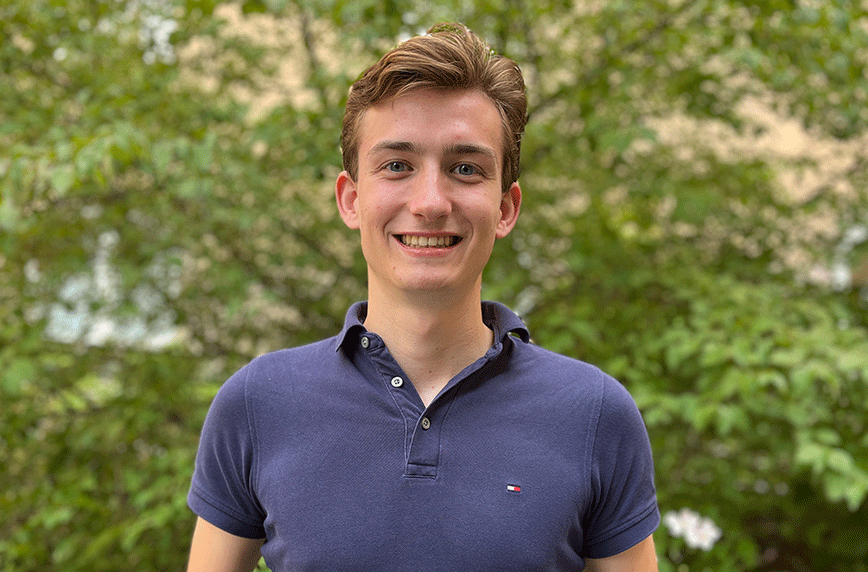Bernd
Bernd is 21 years old and comes from the Netherlands. After he finished his bachelor's degree in Applied Physics at the University of Technology in Delft, he did the first year of the COSSE master's at the Technical University Berlin. In his free time, he likes to bike around the city and run through the parks of Stockholm.

Why did you choose this master’s programme at KTH?
During my Bachelor's, I discovered that I like to model all sorts of physics problems. I wanted to discover whether I really enjoyed the programming. In my final year of my Bachelor's, I had the chance to pursue the minor “Computational Science and Engineering”, and this was the first time that I got in touch with the COSSE programme. After the minor, I wanted to continue in the field of numerical analysis, and the COSSE master's was a logical continuation. The master's allowed me to join a Master in a different field with an international character and the chance to study at two top universities.
Moreover, the universities are spread over multiple countries, and each city has its own character. This allows you to develop not only academically but also personally.
What are the best aspects of your programme?
The best aspect of this programme is that it allows you to create your own learning track and specialize in what you want. For the students who take the first year at TU Berlin, only the first 30 ECTS are mandatory, with courses that form the basis for the rest of the master's. After this, you can discover other fields or specialize in the courses where your passion lies.
How do studies at KTH differ from your previous studies?
Since I studied at all the universities that this Master's has to offer, I will break this question down into discussing studying at all three universities and try to compare them.
Study-wise, I think that TU Delft and KTH are quite similar. Both universities have great facilities, and everything is super well organized. The professors are excellent, and you can always contact them with questions. Usually, the courses are taught in a trimester, and you get a lot of stimulation to study during the trimester via quizzes or midterms.
How is student life in the three cities?
All the cities have their own unique student life. In Berlin, there are no student associations, but there are a lot of opportunities to have fun. The TU offers sports courses to join to meet people and exercise a little. Furthermore, meeting new people in the city is super easy. If the weather is good, you can go to a Späti and gather with some friends in a park or discover the famous nightlife of Berlin. The city has three big universities (and some more private ones), so there are a lot of other students to meet.
In Delft, you can join many student associations to meet new people, try new sports and have some fun. Delft is a relatively small city, but the nice thing about this is that your friends are always close. In Berlin and Stockholm, it usually takes longer to go to your friend's spot. If you like bigger cities more, you are always close to Rotterdam and the Hague.
In Stockholm, you will discover the student association THS on your first day. They offer great parties and many different sports, such as rowing, sailing and football. The thing I love about Stockholm is the access to nature. There are a lot of lakes in and around Stockholm, and there is always a national park nearby to discover.
What would you like to say to students thinking of choosing KTH for master’s studies?
I would advise anyone to try new things, leave their comfort zone, and choose KTH for their Master's studies. The university has everything to offer to develop yourself in the best possible way. You will live in a vibrant city with a lot of student life, close to nature, but including all the benefits of a big city. Best of luck with choosing your Master!
